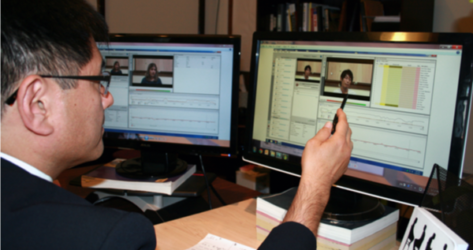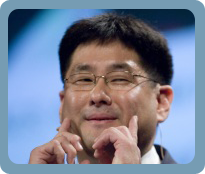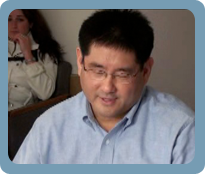David Matsumoto is a world-renowned expert in the fields of emotion, nonverbal behavior, deception, and culture. He received his B.A. from the University of Michigan in 1981, double majoring in psychology and Japanese and receiving High Honors in both. He obtained his Masters (1983) and Doctoral (1986) degrees in Psychology from the University of California at Berkeley. He has been a Professor of Psychology at San Francisco State University (SFSU) since 1989, and was the Founder and Director of SFSU’s Culture and Emotion Research Laboratory (1989-2023).
Psychology

In the academic world, Matsumoto has produced over 400 academic works including books, journal articles, book chapters, and conference presentations. His books include well-known titles such as the Culture and Psychology, the APA Handbook of Nonverbal Communication (ed.), Nonverbal Communication: Science and Application (ed.), the Cambridge Dictionary of Psychology (ed.), Cross-Cultural Research Methods in Psychology (ed.), the APA Handbook of Interpersonal Communication (ed.), the APA Handbook of Intercultural Communication (ed.), and The Oxford Handbook of Culture and Psychology (ed.). He is the recipient of many awards and honors in the field of psychology, and is a Fellow of the Association for Psychological Science, the Society for Personality and Social Psychology, the International Academy of Intercultural Research, and the International Association for Cross-Cultural Psychology. He was the series editor for Cambridge University Press’ series on Culture and Psychology and former Editor-in-Chief for the Journal of Cross-Cultural Psychology. He has been President and CEO of Humintell since its founding in 2009.
Matsumoto’s research has been funded by the National Institute of Mental Health (NIMH); Army Research Institute (ARI); Army Research Laboratory (ARL); Air Force Office of Scientific Research (AFOSR); Air Force Research Laboratory (AFRL); Defense Intelligence Agency (DIA); Department of Homeland Security Science and Technology (DHS S&T); Department of Defense, Combating Terrorism Technical Support Office of the Technical Support Working Group (TSWG); the High Value Detainee Interrogation Research Group (HIG); the Transportation Security Administration (TSA); and the Defense Advanced Research Projects Agency (DARPA). In 2009, Matsumoto was one of the first seven recipients of the prestigious Department of Defense Minerva Initiative Grants to examine the role of emotions in ideologically based groups. Matsumoto’s research has also been funded by a number of private corporations and organizations.
In addition to his work at Humintell and San Francisco State University, Matsumoto has also served as a regular instructor at the FBI National Academy in Quantico, VA and at the U.S. State Department, Diplomatic Core, Visa Services, Diplomatic Security, and Mobile Security Deployment groups. He has also served as a Senior Research Fellow, Behavioral Informatics & Technological Enterprise Studies, FBI Behavioral Science Unit; and as a Member of the FBI High-Value Detainee Interrogation Group (HIG) Research Committee (2012-2022). Matsumoto has also trained countless law enforcement agencies both in the U.S. and internationally.
Matsumoto is an expert in threat assessment and management, especially in relation to behavioral indicators of operational bad actors. He has conducted the only study to date of the cognitions, emotions, and behaviors of bad actors when they are actively engaged in an act of violence, and he has briefed the results of this work to several government agencies. He has also conducted decades of research on behavioral indicators related to deception about the intent to commit acts of malfeasance in the future, and the behavioral indicators that emerged from this work has been briefed to countless military, intelligence, and law enforcement agencies and operators.
Judo

Matsumoto is also the founder and former head instructor of the East Bay Judo Institute in El Cerrito, California. He holds an 8th degree black belt, an international level coaching certification, certifications in all seven katas of Kodokan judo, and a Class A referee certification by the International Judo Federation (since 1999). He has won countless awards, including the US Olympic Committee’s Coach of the Year Award in 2003 and Developmental Coach of the Year Award in 1999.
In addition to holding various positions within the United States Judo Federation and USA Judo, Matsumoto served as the team leader and head coach of the 1996 Atlanta Olympic Judo Team, and as the High Performance Director for the 2000 Sydney Olympic Judo Team. Matsumoto was also an official of the International Judo Federation from 1998 to 2007. He was most recently inducted into the 2021 United States Judo Federation Hall of Fame for his significant contributions to the sport of judo.




